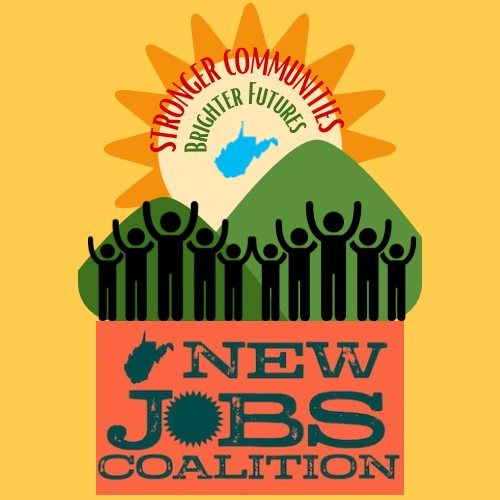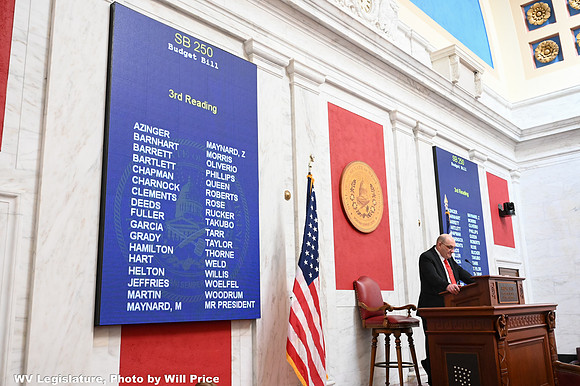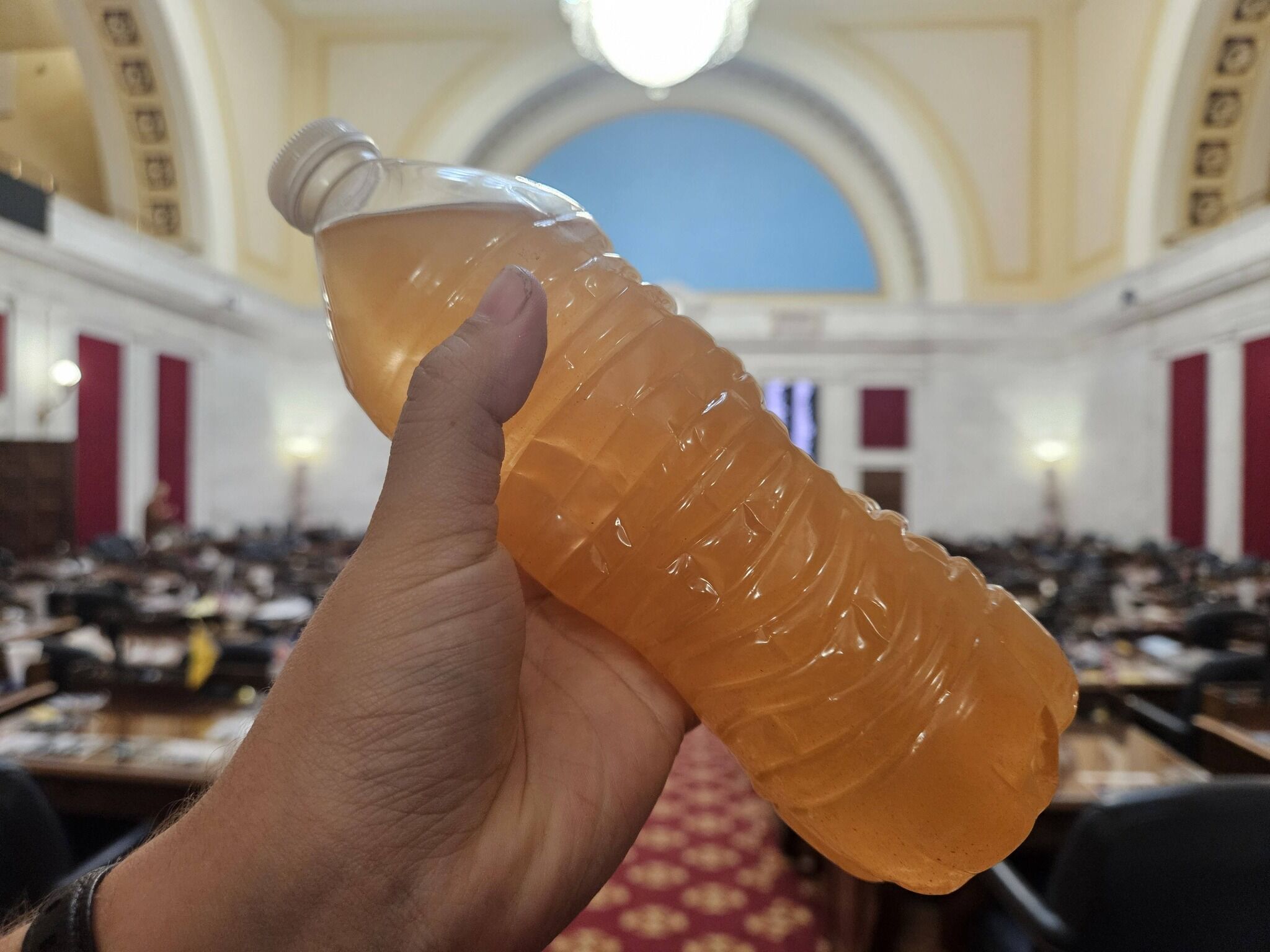- Like
- Digg
- Del
- Tumblr
- VKontakte
- Buffer
- Love This
- Odnoklassniki
- Meneame
- Blogger
- Amazon
- Yahoo Mail
- Gmail
- AOL
- Newsvine
- HackerNews
- Evernote
- MySpace
- Mail.ru
- Viadeo
- Line
- Comments
- Yummly
- SMS
- Viber
- Telegram
- Subscribe
- Skype
- Facebook Messenger
- Kakao
- LiveJournal
- Yammer
- Edgar
- Fintel
- Mix
- Instapaper
- Copy Link
by Morgan Wisniewski, WV New Jobs Coalition Fellow
WV New Jobs Coalition’s recent community efforts aim to usher in a new era of sustainable development in southern West Virginia’s forgotten coalfields. Our mission is to address the economic challenges in communities while also focusing on the Green New Deal framework of “Jobs, Care, Climate and Justice.” We want to acknowledge the resilience of these communities while uplifting the importance of a just transition towards a cleaner, more sustainable future.
Forcing our coalfield communities to rely solely on declining industries is a significant risk to their long-term stability and the state’s growth. They deserve a shift towards sustainable alternatives, such as renewable energy, which offers a promising avenue for economic diversification. In particular, solar power presents a viable and sustainable alternative. Investing in solar projects addresses environmental concerns and creates new job opportunities, fostering economic growth. The Inflation Reduction Act is a pivotal tool for securing the necessary funding for these crucial initiatives.
Organizers with the WV New Jobs Coalition recently took it to the back roads of Southern WV to engage mayors and city managers and attend public town council meetings. We visited 53 towns and cities across 17 counties, primarily in Southern West Virginia. This outreach has been a strategic and inclusive process aimed at building relationships, hearing stories, determining needs and facilitating financial connections through the Inflation Reduction Act.
Embracing renewable energy helps mitigate communities’ economic challenges and positions them for long-term resilience and prosperity. Sustainable alternatives provide an opportunity for job creation, skills development, and a renewed sense of community purpose.
Visiting towns across southern West Virginia revealed a portrait of resilience and renewal, specifically in nine coalfield communities (Beckley, Bluefield, Danville, Fayetteville, Gauley Bridge, Matewan, Mullens, Pineville, and Union), which share common struggles and aspirations. They are all seeking to revitalize their economies and preserve their cultural heritage amid the decline of the fossil fuel industry.
They want to invest in infrastructure projects, renewable energy initiatives, and neighborhood development programs to create new opportunities for growth and sustainability. Despite facing challenges such as economic downturns and environmental concerns, West Virginia’s mine and rail towns are ready to forge ahead with determination and ingenuity, harnessing federal support to build a brighter future for generations to come.
From the very beginning of our work, we acknowledge that West Virginians are hurting and neglected. We want to recognize the pain, isolation and struggle these communities and their leaders are experiencing.
Their feelings of hopelessness and anger are valid. We acknowledge that southern West Virginia, particularly the smaller, less economically stable towns, have been neglected by Washington and “the bubble” in our state capital, Charleston, West Virginia. We emphasize this money is available across the U.S. for many and that the sooner they apply, the better their chances of receiving it.
WV New Jobs Coalition wants to motivate communities to channel their emotions into creativity and funding initiatives. This money belongs in southern West Virginia, and they deserve it as much, if not more, than anyone eligible.
The initiative reinforces that it is not about undermining coal and leaving our fossil fuel workers unemployed. Instead, it was about empowering our workers to transition into new careers and create fresh job opportunities for those who have long grappled with unemployment. We discuss the potential direction a move to energy efficiency could take amongst the West Virginia workforce.
We share a vision of bringing renewable manufacturing jobs to West Virginia, creating plants to build solar panels and windmills in the state, resulting in new industries and career paths for a multitude of jobs.
By harnessing federal funding, communities can generate enough employment to sustain workers year-round, lessening their dependence on seasonal or part-time work and fostering lasting economic growth throughout the region.
The Positive Impact of Renewable Energy Initiatives on Rural Coalfield Towns in Appalachia
Transitioning to renewable energy sources mitigates the environmental impacts of fossil fuel extraction and combustion. It reduces greenhouse gas emissions, improves air quality, and protects natural resources such as waterways and ecosystems, safeguarding the health and well-being of residents and future generations through this environmental stewardship.
Renewable energy initiatives empower local communities to take ownership of their energy resources and shape their sustainable future. Community-owned renewable energy projects, cooperative models, and decentralized energy systems promote democratic decision-making, foster social cohesion, and ensure that the benefits of energy development are shared equitably among residents, fostering community empowerment.
Next Steps
Federal and state support is vital for Appalachian renewable energy success:
Investment and Funding: Federal and state governments should allocate sufficient funding and resources to support the development and implementation of renewable energy projects in rural coalfield towns. This includes grants, tax incentives, low-interest loans, and technical assistance programs to overcome financial barriers and facilitate project deployment.
Policy Support: Enact policies and regulations that promote renewable energy deployment, streamline permitting processes, and remove regulatory barriers hindering project development. Implement renewable energy standards, renewable portfolio standards, and net metering policies to create a favorable policy environment for renewable energy investment and adoption.
Capacity Building: Invest in workforce development programs, vocational training, and education initiatives to build the skills and expertise needed to support rural communities’ renewable energy industry workforce. This includes training programs for installers, technicians, engineers, and entrepreneurs to ensure a skilled labor force that drives renewable energy innovation and growth.
Community Engagement: Foster collaboration and partnership between government agencies, industry stakeholders, non-profit organizations, and local communities to ensure that renewable energy initiatives are tailored to the specific needs, priorities, and aspirations of rural coalfield towns. Empower communities to participate in decision-making processes, project planning, and implementation to maximize local benefits and ownership.
By heeding this call to action and supporting renewable energy initiatives in rural coalfield towns throughout Appalachia, we can unlock renewable energy’s full potential to drive economic prosperity, environmental sustainability, and community well-being across the region.
Visit newjobswv.org/report/ to view the full report.




